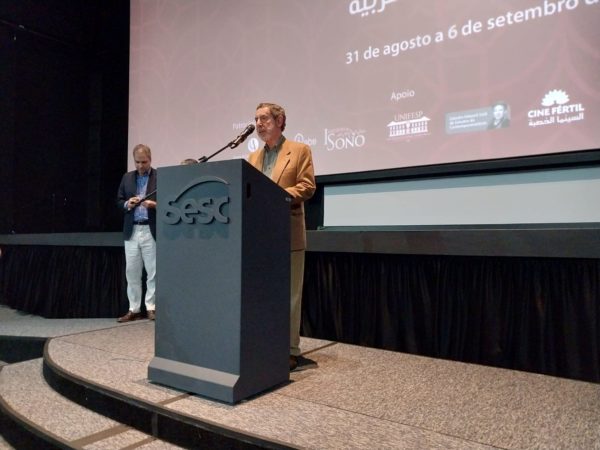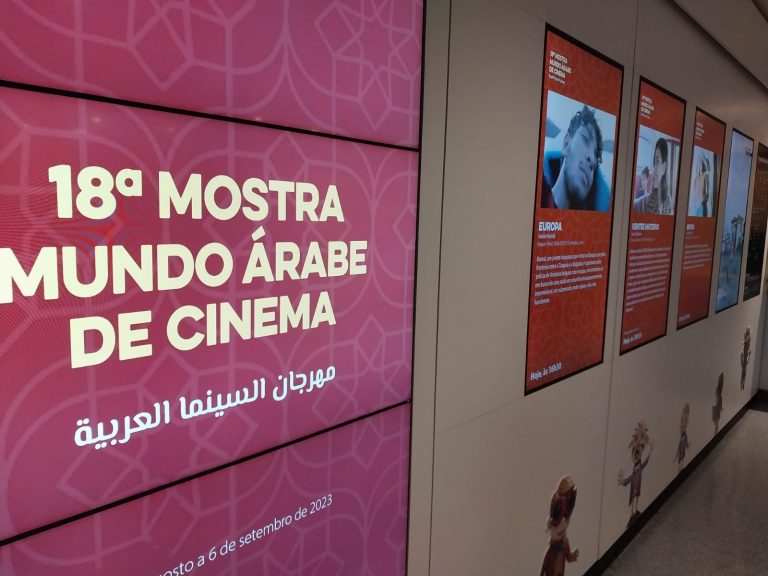São Paulo – Three sisters living with their family in a quiet village in the Lebanese mountains. In a world of arranged marriages negotiated with dowries, one of them, Layla, lives between the dissatisfaction of married life and the delight of being the mother of a seven-year-old boy. The visit of two French people interferes with the family’s routine and introduces those women to lives different from the patriarchal system in which they are immersed.

With this plot, the 18th Arab World Film Festival opened this Thursday (31) evening in a sold-out room at Cinesesc, in the capital of São Paulo. The first film on the schedule, ‘Mother Valley’ [‘La nuit du verre d’eau’], a French-Lebanese production directed by Carlos Chahine, was a teaser of the following screenings until September 6: Productions displaying the routines of Arab homes and cities permeated by an in-depth discussion on societies and geopolitical issues in the region.
In ‘Mother Valley,’ a 2023 film that now premieres in Brazil, the setting is 1958, when Lebanon lives amid a religious conflict between Christians and Muslims. At that moment, the crisis was not directly in the village but centered in the capital, Beirut; however, it spilled over into the small place’s coexistence when a Muslim living with a Christian family left after a religious discussion. The French also introduce their way of life to that family, with many divorces and world travels, which allure housewife Layla.
At the festival opening, curator Arthur Jafet spoke about the selection of films and the importance of encouraging the arts in the Arab world; according to him, currently full of challenges but capable of reinventing itself. “Creative expression is a potent tool that today, more than ever, demands our endorsement and support. Enabling independent cultural production is crucial to creating vibrant societies,” said Jafet, who is also director of National Relations at the Institute of Arab Culture in Brazil (ICArabe), which promotes the festival alongside SESC São Paulo.

“Changes in the world are reflected in the sphere of artistic creation,” said the president of the Arab Brazilian Chamber of Commerce (ABCC), Osmar Chohfi, at the opening ceremony. The ABCC is a festival sponsor through its cultural branch, the Arab House. Chohfi recalled the event marks the 20th anniversary of the death of Palestinian scholar Edward Said. “A great orientalist and activist of Eastern culture who stood out in the academic field internationally,” said Chohfi.
Said and his ideas gave rise to the creation of ICArabe. The institute’s cultural director, Soraya Misleh, spoke about this story at the exhibition’s opening. “It arose from this resentment at how we were portrayed and how we are portrayed,” said Misleh about the stereotype constructed about the East Said opposed: “An invented East, of barbarians, uncivilized, inclined to violence by nature, which, therefore, needed to be controlled, in contrast to the West of rational, civilized, and logical,” described Misleh.

Speaking on behalf of Cinesesc, manager Gilson Parker recalled the Arab World Film Festival reached its 18th anniversary. He said it has been fruitful in exploring the diversity of the Arab world, which is sometimes unknown, despite the proximity São Paulo has with Arab communities. “I usually say Cinesesc has a door to Rua Augusta and a window to the world,” he said. Rua Augusta is Cinesesc’s address.
The Arab World Film Festival brings ten new films from Arab countries or co-produced with Arabs. Three have Palestinian participation, which was thought of in homage to Edward Said. One is ‘Alam,’ which depicts the story of students who decide to replace the flag on the eve of Israel’s Independence Day. Another is ‘Hanging Gardens’ [‘Janain mualaqa’], about a boy who found a sex doll in the garbage in Baghdad, and the third is ‘A House in Jerusalem,’ in which a girl moves from England to Jerusalem, where she tries to heal the wounds of her mother’s death.
The program includes two debates this Friday (1) and next Tuesday (5).
In addition to the ABCC, Instituto do Sono sponsors the event. The festival also has the support of the Edward Said Chair of Contemporary Studies and the Dean of Extension and Culture of the Federal University of São Paulo (UNIFESP), CineFértil, and Tabla publishing house.
Quick facts:
18th Arab World Film Festival
August 31 to September 6
CineSesc – Rua Augusta, 2075, Cerqueira César – São Paulo
Full schedule here
Tickets: BRL 24 (full), BRL12 (discounts), or 8 (Sesc member).
Translated by Elúsio Brasileiro




